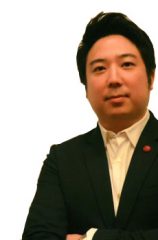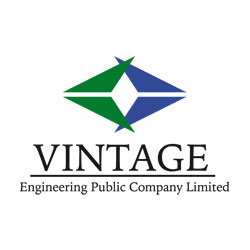In conversation with
Mr. Supasit Pokinjaruras
MD, PA | Green Earth Power (Thailand) Co., Ltd.

FDI Spotlight: What was the inspiration behind making the transition from working in the financial sector to the renewable energy sector?
Mr. Supasit: I believe our generation was brought up to never settle with mediocrity, and to strive for greatness in our own entrepreneurial directions. Both Khun Aung and I could have been comfortable working for globally recognised financial institutions earning a fixed income, however we both share the same passion for accomplishing something for ourselves and to have the independence to lead a company into dynamic new directions. From some research that I conducted and conversations with business connections both in Thailand and in Japan, I felt like the renewable energy sector was the growth driver industry that would continue to expand, and so this is how I came to Khun Aung to discuss partnering with him to enter into this new industry. As I could see it, it’s an industry that is similar to the real estate sector in many respects, however with a safer risk factor. I make this comparison as both industry have high capital outflow in the initial stages, however in the energy sector, the contracts that are signed for the energy to be transferred to the grid are so long term, that it ensures a steady revenue flow. In this respect I feel that Mr. Aung and I have entered the renewable energy market at the right time.
Mr. Aung: I am originally from Myanmar but I grew up in Thailand. I continued my studies in the States in Boston, then onto London for my first masters at the London School of Economics and then NYU for my second masters. After my studies I was working on Wall Street for 8 years in real estate investment banking and so my firm at the time were particularly hit hard when the Sub Prime Collapse happened. When the US market tanked in such a way, I had to look for something new. I started to work for a fund that dealt in buying infrastructure and shopping malls in Brazil as well as helping some of the debt restructuring that was happening as a result of the fallout from the property disaster in the States. When I look back at this time, it was incredibly exciting, but also stressful. So when Sean and I met in New York 6 years ago and he explained his plan to me, combined with the fact that my home nation Myanmar was opening up to democracy, I decided it was the moment to go back to South East Asia and to make the most of it. I knew this was my chance. Since then, our intention has been very clear: we want Vintage Engineering Public Company Limited to grow sustainably. This cannot be accomplished overnight; and naturally there are invariably some obstacles to overcome. Today we are still growing. We are always on the lookout for new projects, such as at the moment we are looking at wind and biomass energy plants to add to our portfolio.
What are the fundamentals that you look for when starting a new project?
Mr. Aung: In the solar energy industry I think the plants’ fundamentals, like technology and skills, are quite similar in structure across the industry. We are currently finishing 2 solar farms in Myanmar each with 22 megawatts and we are in the process of acquiring 6 new projects this year which, when combined together, would add a further 25 megawatts. We cannot rely solely on solar energy though. This is why we are also entering into the biomass industry. We have applied for our first biomass project in Japan for 25 megawatts and it is due to be completed by the end of 2016. Moments like these are very exciting for us, but we must not get carried away. We are facing some challenges as well. As you can see, many of the biomass plants in the region are shutting down. This is primarily due to the cost of the feedstock commodity in Thailand, which are used to power the biomass plants, continuing to rise and thus pricing many out of the market. To combat this, we have leveraged our capacity in the region, and are using the feedstock from our operation in Indonesia in order to fulfil the demand for the biomass plant in Japan.
What would you consider to be the most significant challenges that the energy sector is facing?
Mr. Aung: The renewable energy sector in Thailand is undeniably booming right now. However as leaders in the energy industry, we must not get too complacent. Many of the players in our industry, when thinking about renewable energy in Thailand, immediately think about solar energy. Solar energy is indeed a viable and profitable energy source here considering the amount of sunshine we receive annually, as well as the government tariffs that make the sector economically viable. But we must not forget the challenges for the solar sector, such as the Governments energy policy that only 10% of the grid can be powered by solar energy. Solar energy licenses are already oversubscribed and so therefore, without a change in policy, there is not that much room to grow.
Secondly, as everyone knows solar energy can only be collected during daylights hours. If we are serious in our development strategy to utilize renewable energy within the nation’s energy road map, we must rely on more base-load power to fill the void to facilitate continuous power generation. We originally thought that biomass energy could fill this gap, however with the government incentives for biomass not being as attractive as those for solar energy, implementation of this strategy has thus far been problematic.
Mr. Supasit: One of the main challenges that the energy sector is facing at the moment is that with the wave of euphoria surrounding renewable energy, we still need to be realistic with our energy needs. It is widely believed that coal and fossil fuels harm the environment and so therefore, should not be used. Of course we must prevent environmental destruction on Earth but we still need to grow. It is important to find new ways of producing energy, which is the case with renewable energy. However, we are still reliant on conventional energy, so we are investing in innovation such as in cleaner coal to harness the energy potential at a greatly reduced environmental cost. This is a realistic approach that we have in mind.
What opportunities and challenges do you foresee with the birth of the AEC?
Mr. Supasit: I have to admire the persistence of all the 10 South East Asian nations uniting with the intention of regional development and the improvement of the quality of life for the combined population of 600 million people. We must first look to each other, and see how we can gel and work together, unleashing the economic potential of the ASEAN Economic Community through regional collaboration. Foreign investors should consider the identity of the region as a whole and to be open minded when it comes to business culture. Before working together we have to understand each other. I think intercultural communication should be made a priority at a global level; to make people more adaptable when interacting with people from other countries is a necessity today.
Mr. Aung: This is not a new concept. As Khun Supasit righty mentions, whether you like it or not Thailand is in the ASEAN Economic Community now, and so any investor coming here has to look at Thailand as an integrated country in the whole region. Thailand should be seen as the gateway to the whole region. Even here at Vintage Engineering Public Company Limited, we have business in neighbouring countries, but we have chosen to have Thailand as our base. The country has the best skilled labour in the CLMV, and combined with the continued developments in infrastructure, I am sure it will be a hub for our sustainable future.
What is your message of confidence to the international investors with their eyes on Thailand? Why should they come and partner with you?
Mr. Aung: I’m sure investors are concerned over the fragility of global economic conditions. ASEAN on the other hand is the new block that is expected to grow sustainably for years to come. From my perspective, Thai people are more open to international investment than ever before. The stock market has the largest volume in the region and there is a burgeoning middle class, all of these signs point towards success. Vintage Engineering Public Company Limited is an ASEAN oriented business and as ASEAN grows, we grow as well.
Mr. Supasit: At Vintage Engineering Public Company Limited we have the great opportunity to meet people from around the globe. Our studies abroad and experience on internationals projects have helped us understand different cultures; we think out of the box and we always do business transparently. Our background in finance has helped us see things more pragmatically and become professionals in the energy industry.
